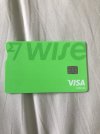Robert Wawrzyniak
New Member
- Time of past OR future Camino
- Frances (2017); Mozarabe (2019); Ingles (2019)
Hi all
We will start the Norte from Bayonne on 20 April 2023. As with past caminos, we will purchase a supply of euros before leaving Oz but in talking to the bank it seems that they mostly hold 200 euro notes. We have travelled holding mainly 100 euro notes in the past and experienced little difficulty in changing these at stores and albergues, etc. Whilst we realise that smaller denominations are easier to transact with they are usually difficult to get prior to departure. Question is, has anyone travelled with the 200 euro notes recently and did they experience any difficulty in cashing them?
We will start the Norte from Bayonne on 20 April 2023. As with past caminos, we will purchase a supply of euros before leaving Oz but in talking to the bank it seems that they mostly hold 200 euro notes. We have travelled holding mainly 100 euro notes in the past and experienced little difficulty in changing these at stores and albergues, etc. Whilst we realise that smaller denominations are easier to transact with they are usually difficult to get prior to departure. Question is, has anyone travelled with the 200 euro notes recently and did they experience any difficulty in cashing them?





















